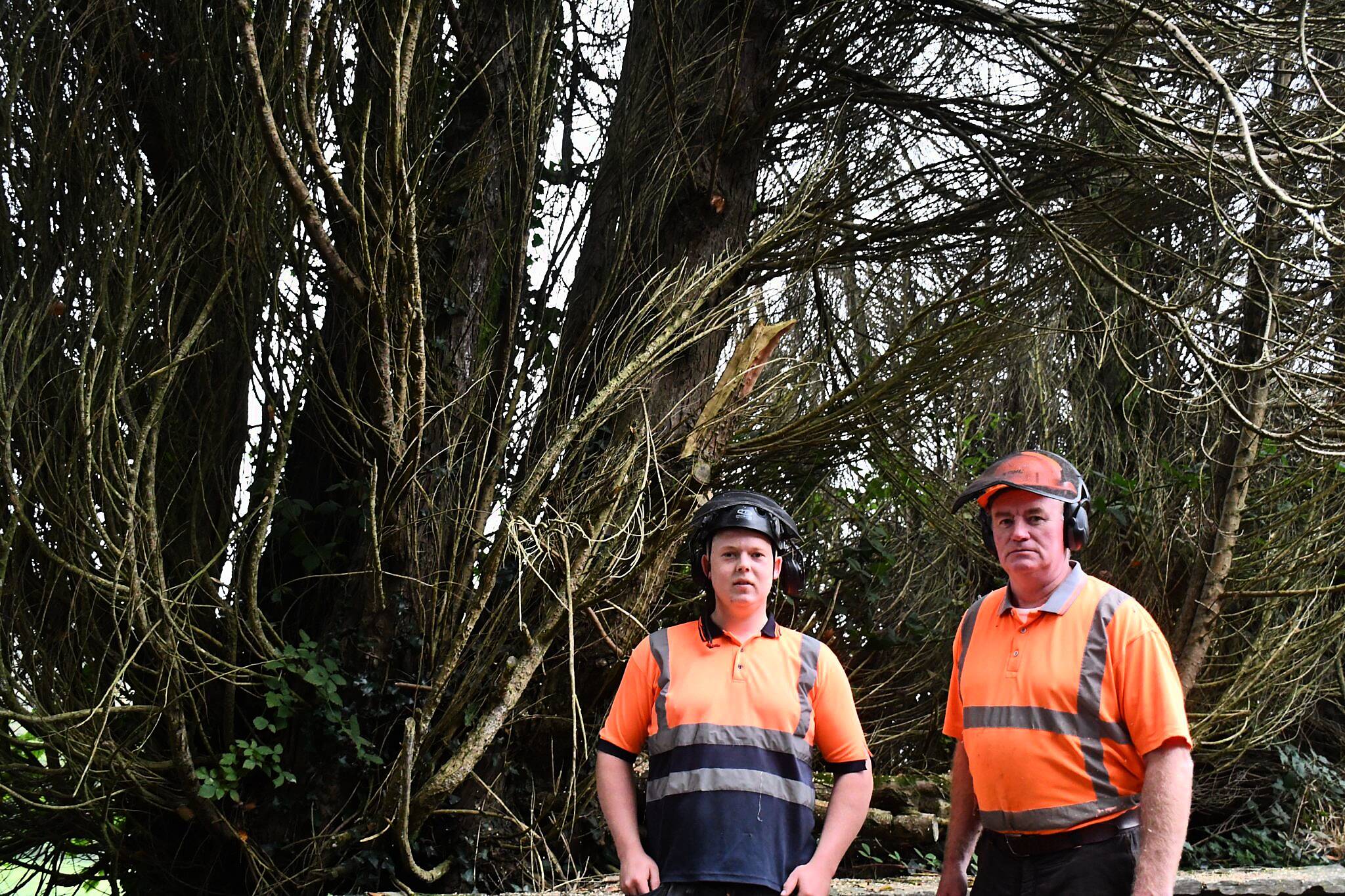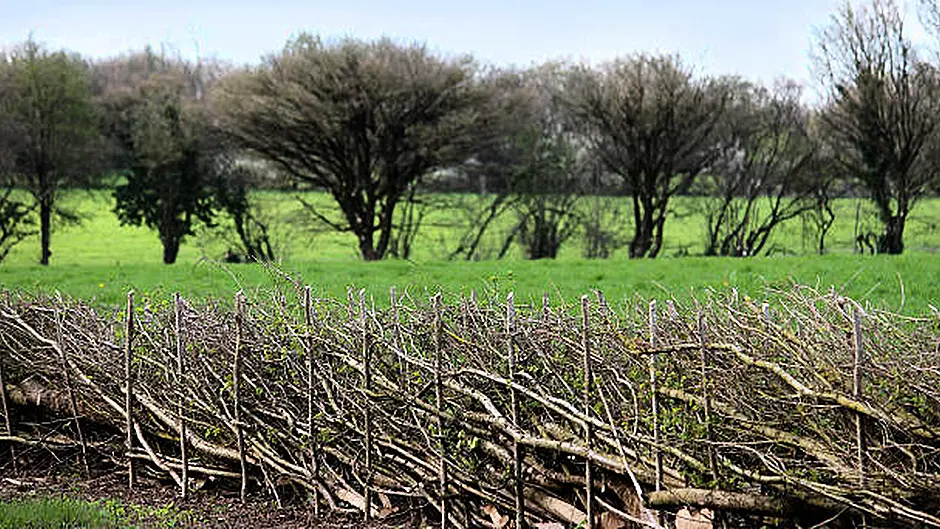Many traditional skills for managing our trees and hedgerows have become devalued as we rely more on machinery and technology and less on our hands, brains, initiative, resilience and traditional knowledge, says woodland manager JOHN BAKER
THE hedge-cutting season has ended and we have a new European law aimed at either restoring nature, or stealing the land from hard working farmers – depending on your point of view.
Perhaps the way things play out from here on depends on our ability to adapt to change and form co-operative alliances across communities. Environmentalists and farmers have some difficult conversations to have, but should not be enemies.
Using the issue of hedge management as a starting point, there could be some optimistic outcomes for a challenging situation.
I have worked with trees for decades and the degradation of our roadside hedges by repeated misuse of mechanical flailing is deeply distressing to me. We must do better.
There good practices available that could be extended to roadside hedges and beyond.
 Ger O’Sullivan and Mark Cooke of O’Sullivan Tree Services at work near Leap where they believe many tree species are dying. (Photo: Anne Minihane)
Ger O’Sullivan and Mark Cooke of O’Sullivan Tree Services at work near Leap where they believe many tree species are dying. (Photo: Anne Minihane)
There have been recent reports in West Cork regarding the ongoing death of trees in West Cork that goes beyond ash dieback into other species.
This is a symptom of a degraded ecosystem caused by various factors, including over-intensification and mechanisation of land-use practices and a build-up of toxins in the ecosystem from both economic and political ideology.
We need more people working the land and in food production.
Though it breaks my heart, I can understand how managing hundreds of acres with high labour costs leads to a reliance on machines. That tends to disconnect people from the land and lead to poor practices.
Trees and hedgerow shrubs are resilient and can bounce back from a lot of disruption, but repeated ‘splintering’ by mechanical flails will eventually kill sensitive plants and reduce diversity in our hedgerows.
Machine operators need training in ecological safety, as well as human safety.
 Rot advancing on a badly splintered tree in West Cork.
Rot advancing on a badly splintered tree in West Cork.
As the Nature Restoration Law states, we need a proportion of land left for nature to be. This means caring for woodlands, hedgerows and water ways. Done right this is to everyone’s benefit.
We must view these areas as resources and reservoirs, rather than problems and risks. Hedges hold the soil in place and increase fertility, give shelter and forage to stock, help reduce flooding and can provide fuel, food and medicine.
A healthy landscape is a beautiful one, its people are likely to be healthy and it is attractive to visitors with money to spend.
Over-draining land, removing or failing to care for trees and hedgerows undermines the capacity of the land to support life.
Neither neglect nor destruction is the answer, but careful husbandry. This requires more people working the land with the right skills and knowledge.
Many of these are skills that have been devalued as we have come to rely more on machinery and technology and less on our hands, brains, initiative, resilience and traditional knowledge.
The careful cutting of a tree down to ground level is known as coppicing, or to just over head height is termed pollarding. This invigorates and extends its life. With dieback-infected ash I have seen a reduction in the disease, at least for a few years.
Done on a cycle of between one year and up to 20 years this can provide firewood from the same plant nearly indefinitely, but cuts need to be clean and ideally sloping away from the centre of the plant to avoid water build up and rot.
Hedgelaying is a labour-intensive, skilled process of renewing hedges, cutting plants through at the base and bending them over to create an unbroken hedge growing from the ground up.
Soil husbandry is, I believe, the way forward – it’s a mix of the old and the new. There is an increasing interest in the value of biodiversity in soils and how that supports life above ground. Helping to cultivate a thriving underground community of bacteria, fungi and soil life is the best way to produce good food above ground.
More eyes, hearts and hands on the land means more time and care can be taken and we can be more innovative. This is difficult in the current economy. Therefore we must change our economy and the value systems that underlie it. That is a big task. We can start by imagining what it might look like.
For people looking to further explore the issues raised in this article or get involved in planting trees and regenerating landscapes here are some links:
hedgerows.ie – promoting the conservation and nature friendly management of hedges;
plantatreegrowaschool.ie – planting trees to raise money for West Cork Sudbury School;
treesplease.ie – Cork based group growing and distributing trees.
• John Baker is a permaculture practitioner in West Cork. He has worked as a landscape designer, market gardener, woodland manager, orchardist and educator and can be contacted at [email protected]









